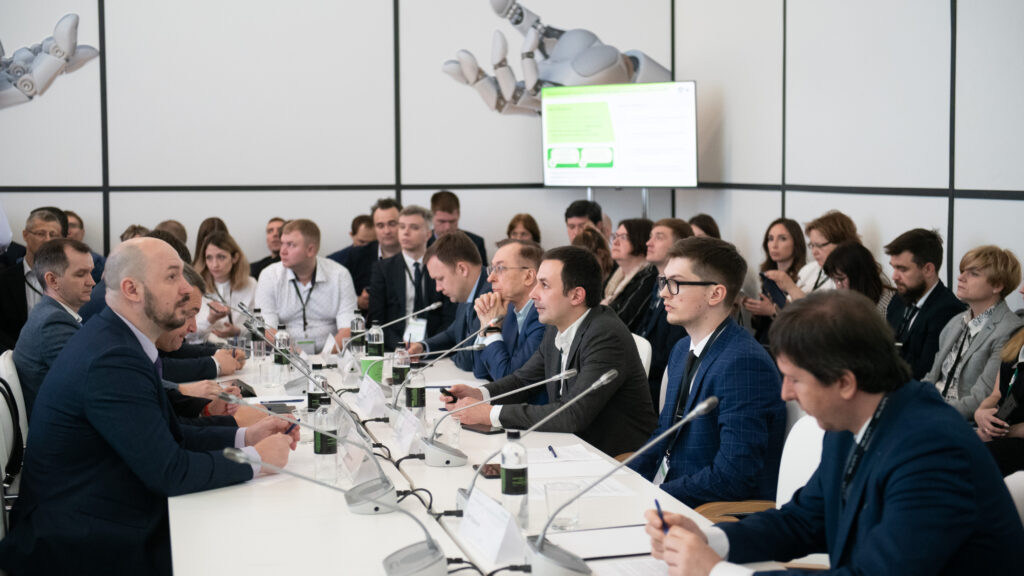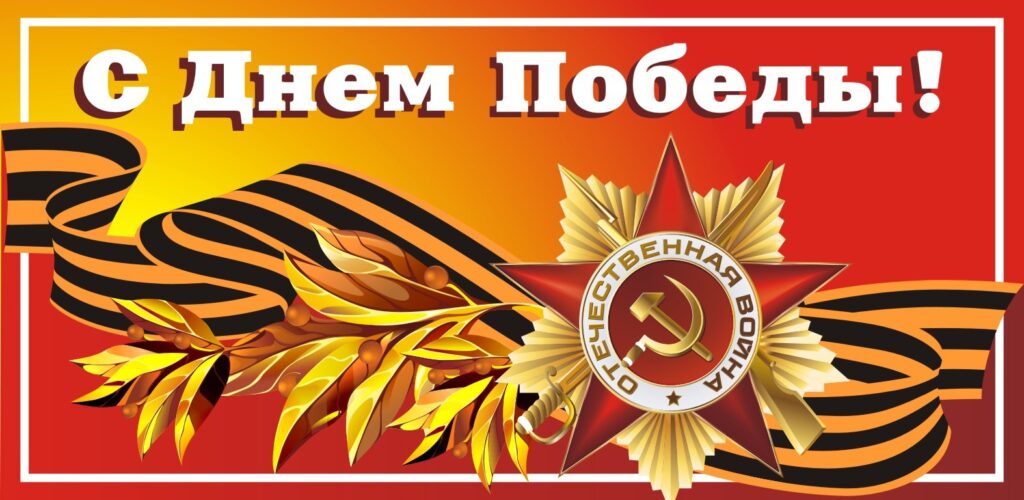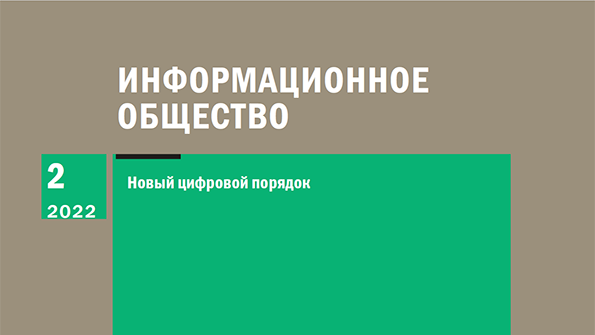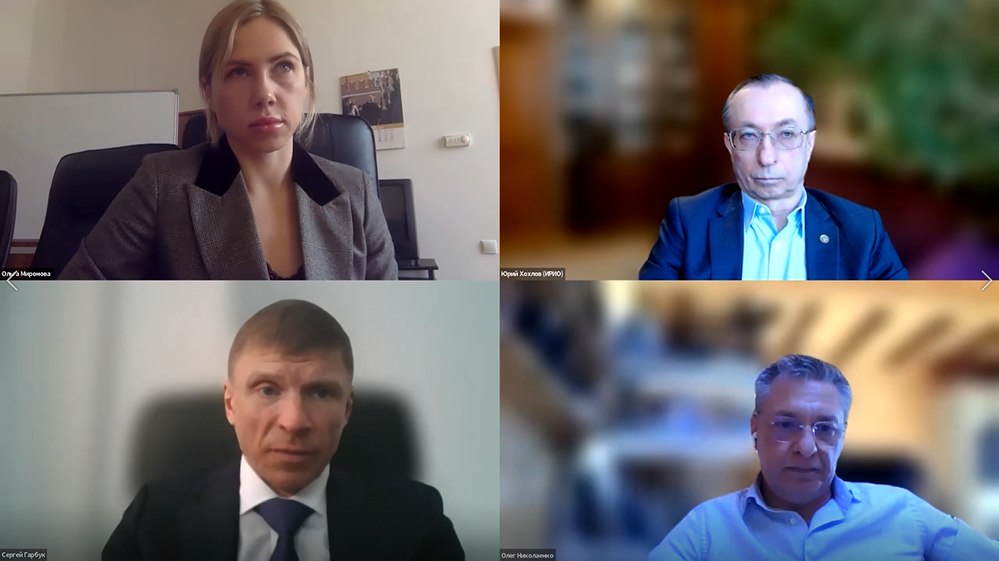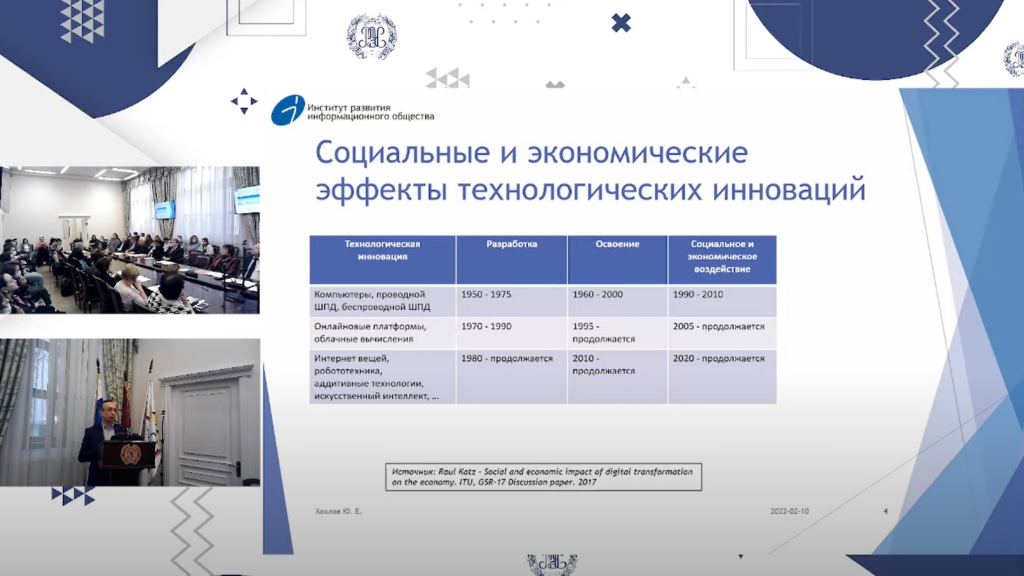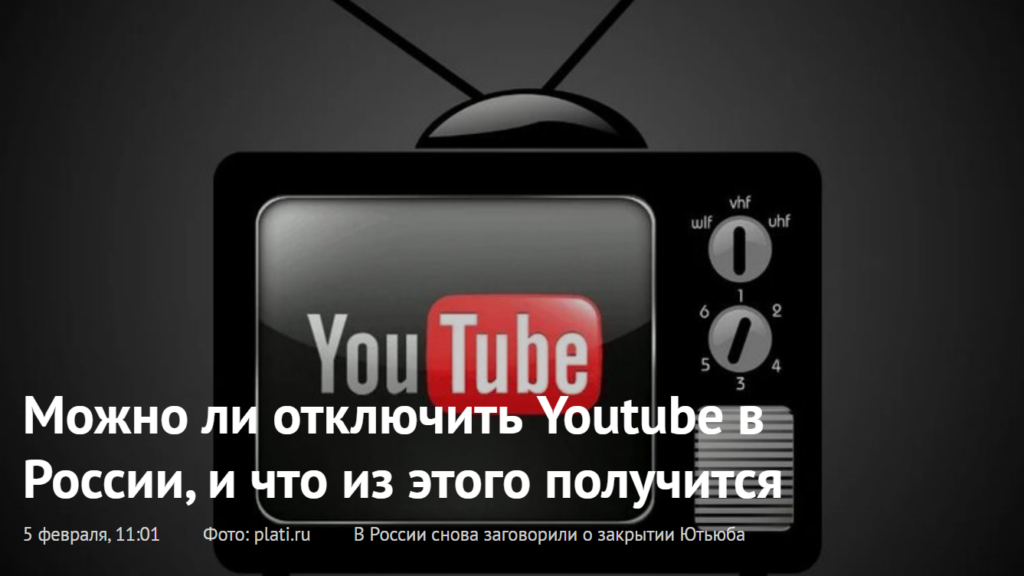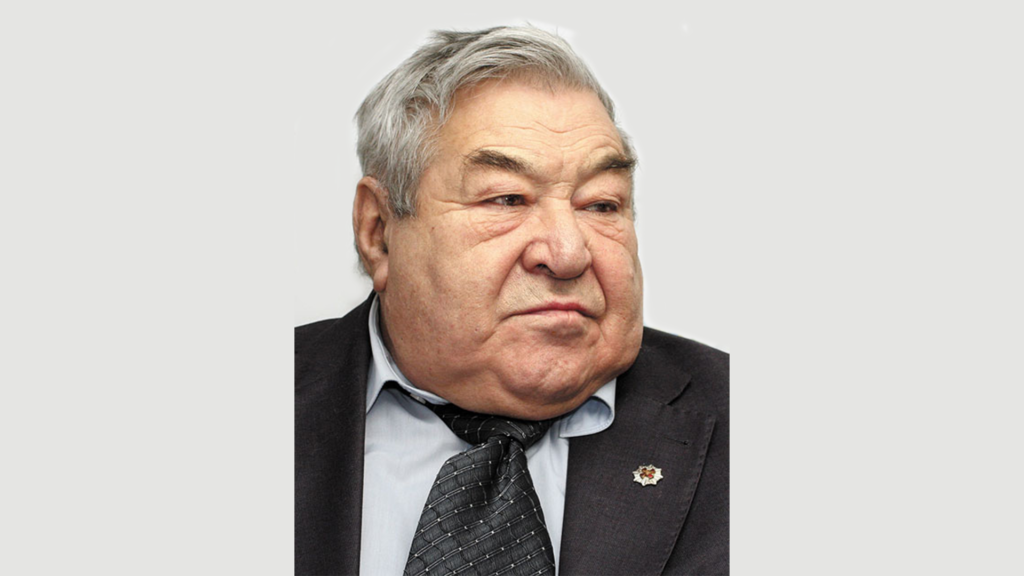The Conference “Digital Industry of Industrial Russia” (CIPR) is the most representative business event in the field of digital economy in Russia. The conference brings together representatives of the digital industry from both Russia and abroad, and is an important tool for promoting domestic and foreign solutions.
In 2022, CIPR was held from June 1 to June 3 in Nizhny Novgorod and combined a business forum and an exhibition, where partners presented their new developments and conceptual solutions. The conference program included discussions of modern conditions for the development of digital technologies, the formation of demand and supply for Russian solutions and products, anti-crisis support measures for the transformation of key sectors of the economy, the sustainability of economic and social development.
On June 2, the strategic session “National Index of the Russian Digital Economy (finalization of the indicators system and calculation methods)” was held. The moderator was Oleg Karasev, Vice-Rector – Head of the Department for Organization of Research Works and Training of Scientific Personnel of Lomonosov Moscow State University.
The National Index of the Russian Digital Economy is a rating that allows, based on the integral value and the values of sub-indices, to evaluate the digital development of the Russian regions in order to form management decisions aimed at improving the quality of life.
The session analyzed and discussed the results of updating the indicators system and the methodology for calculating the Rating in 2021, as well as the results of assessing the development of the digital economy of the Russian regions. The purpose of the event was to identify key areas for further improvement of the Rating. The main issues on the agenda of the session were:
- the results of the Rating for 2020, as well as recommendations for using the Rating as a tool for making managerial decisions aimed at facilitating the process of digital transformation at the regional level;
- proposals for updating the system of indicators of the Rating based on the analysis of the list of potential indicators and alternative data sources.
The following took part in the discussion:
- Pavel Sidnyakov, Adviser of the Programs and Projects Coordination Department of the Ministry of Digital Development of the Russian Federation
- Egor Shitov, Deputy Executive Director of the NTI Competence Center for Big Data, Lomonosov Moscow State University
- Evgeny Zryumov, Minister of Digital Development and Communications of the Altai Territory
- Petr Shilovskikh, Minister of Information Development and Communications of the Perm Territory
- Yuri Hohlov, Chairman of the Board of Directors of the Institute of the Information Society
- Alexander Pokhlebaev, Advisor to the General Director of ANO Dialog Regions
- Sergey Cheremisin, Deputy Regional Director, ANO “Digital Economy”
- Vasily Shpak, Deputy Minister of Industry and Trade of the Russian Federation
- Andrey Savchenkov, Head of the Technological Directorate of PJSC Rostelecom
The results of the discussion will be used in the process of finalizing the Rating in terms of updating the indicators system in 2022.
On June 3, an expert session “Artificial Intelligence: Implementation in Healthcare” was held. Its moderators were Aleksey Sidoryuk, Director of Artificial Intelligence and Development Director of the ANO “Digital Economy”, and Evgeny Osadchuk, Deputy Director for Federal Projects of the Digital Transformation of Industries section of ANO “Digital Economy”.
The introduction of artificial intelligence systems in healthcare is one of the most important modern trends. The use of new technologies can improve the quality of diagnostics, as well as significantly expand access to quality medical services. The session experts discussed incentives and barriers to the introduction of AI in medicine, shared best practices, assessed the effectiveness of existing support measures and the prospects for their expansion.
Speakers at the session were:
- Pavel Pugachev, Deputy Minister of Healthcare of the Russian Federation
- Sergey Nakvasin, Deputy Head of the Analytical Center under the Government of the Russian Federation – Head of the Center of Expertise for the Implementation of the Federal Project “Artificial Intelligence” of the AC under the Government of the Russian Federation
- Alexey Sidoryuk, Director for Digital Transformation of Industries and Companies, ANO “Digital Economy”
- Evgeny Osadchuk, Deputy Director for Federal Projects of the Digital Transformation of Industries section of ANO “Digital Economy”
- Sergey Sorokin, CEO of Interlogic
- Anna Meshcheryakova, General Director, Third Opinion
- Alexander Gusev, Development Director, Webiomed
- Ilya Romanov, Commercial Director of VisionLabs
- Vitaly Zayats, Director of the Federal State Autonomous Institution “Resource Center for Universal Design and Rehabilitation Technologies”
- Tatiana Shilova, Project Manager, RTK Radiology
- Yuri Hohlov, Chairman of the Board of Directors of the Institute of the Information Society.
